March 6, 2023
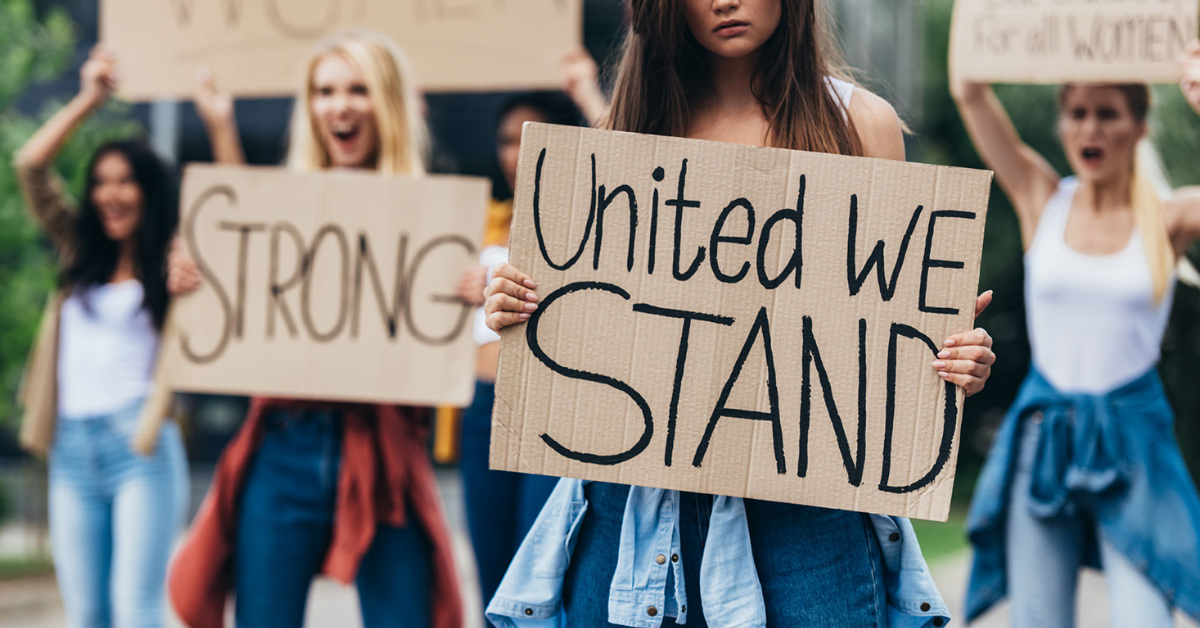
Let’s dive into some of the compounding factors that women experiencing poverty face,
and how programs supported by United Way address those barriers to level the playing field.
Trigger Warning: This article contains brief mentions of violence against women, racism, and the ongoing impacts of colonialism. If any of these subjects trigger you, please take the steps you need to prioritize your well-being today. If you need immediate support, 211 Alberta can connect you with resources that can help.
Alberta has long been considered one of the wealthiest provinces in Canada, but many Albertans experience poverty — especially women.
In the Edmonton region, over 60 percent of people accessing poverty supports are women.
Why women experience higher rates of poverty, and how their experience is unique, is largely due to sexism. (Yes, sexism is still a real barrier to success and equity. Even in 2023.)
But women’s experiences also need to be seen through a lens of intersectionality, understanding that systemic barriers and oppression don’t exist in isolation; they overlap and can have compounding impacts. For example: a person living in poverty may experience not only sexism, but also ableism, racism, and homophobia.
This ongoing issue is what drew a group of passionate supporters of United Way of the Alberta Capital Region to join Women United, an initiative focused on ensuring women have full and equal access to resources and opportunities. Women United supporters come together in their purpose to lift and care for one another, to create a world where everyone is safe and empowered.
Below, we’re going to dive into some of the compounding factors that women experiencing poverty face, and how programs supported by United Way and Women United address those barriers to level the playing field.
Note: this isn’t an all-encompassing list, but merely a surface-level glance at the barriers women face.
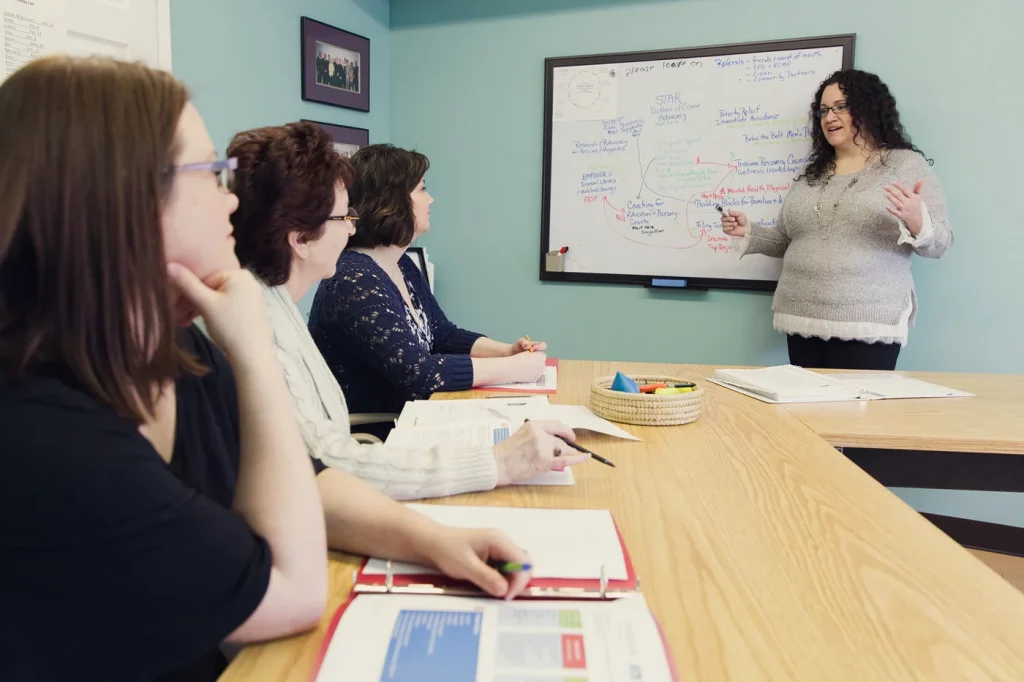
Nicole is one of thousands of people who built stronger, more stable futures though the Empower U financial empowerment course.
The Issue: Nearly two-thirds of low-wage earners in the Edmonton region are women and, on average, women in Alberta earn less than their male counterparts.
The current minimum wage in Alberta is $15 per hour (students under 18 can be paid as low as $13 per hour). Meanwhile, Living Wage Alberta estimates that a worker in Edmonton needs to earn $21.40 per hour to cover their basic expenses and participate in their community.
This pay gap is influenced by and has its impacts on other barriers faced by women living in poverty, making it harder to break that cycle. Women are also more likely to lead single-parent households, so their paycheque must stretch farther than that of a dual-income household to cover a family’s basic needs.
Banking can also be particularly challenging for marginalized people – especially those who have limited experiences with mainstream financial institutions – because they feel intimidated, unwelcome, or that products and services do not meet their needs.
How We Help: United Way of the Alberta Capital Region’s financial empowerment initiative supports people experiencing poverty gain confidence with interacting with the banking system, improving their relationship with money, and accessing government supports.
Empower U – Building Confident Futures is a United Way program delivered through 10 agency partners, primarily focused on supporting women (although two agencies do welcome male participants). Over several weeks, the program combines financial education, one-on-one financial coaching, and a matched savings plan. Over the last decade, nearly 2,000 people have completed the program, empowering themselves to build stronger, more stable futures.
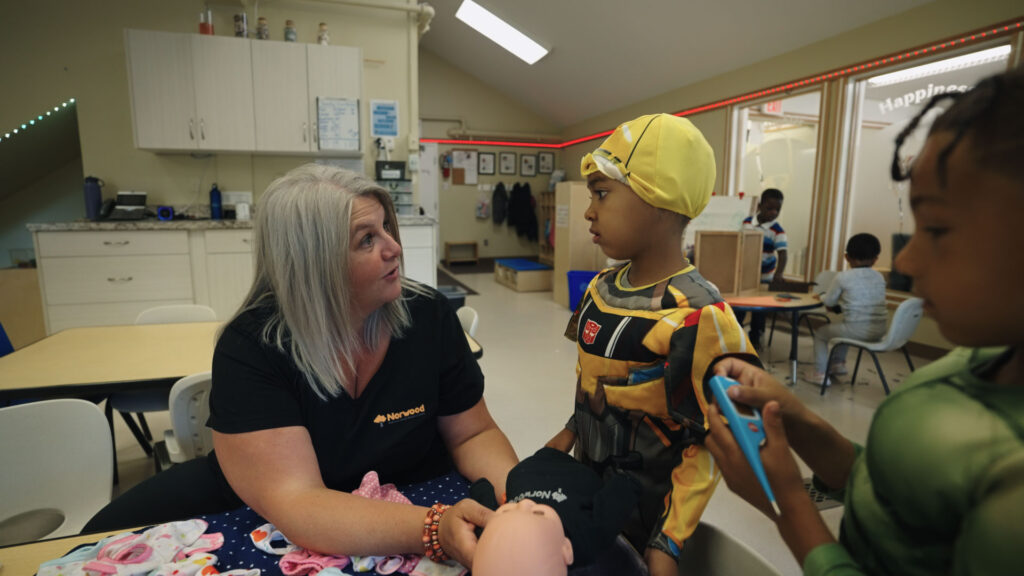
Kathy Burgett, Program Director of Norwood Centre, visits the Parent Respite program – a free drop-in childcare option for low-income families.
The Issue: Childcare is expensive, and many childcare settings require a minimum of hours for children to be at the program. As well, most childcare centres’ hours mirror office hours – meaning parents who work nights or weekends must find alternative care or create their own patchwork network. This can also influence and be influenced by the pay gap: many women take low-paying jobs because the hours are more flexible because they can’t find or afford steady childcare. But a lack of steady childcare can also hold women back from pursuing higher paid jobs.
While the federal and provincial governments are providing more and more subsidies for childcare, parents must first secure a space before they are eligible. A new affordability gap is also created once children start school full-time due to a lack of full day Kindergarten and because out-of-school-care isn’t currently subsidized.
High quality childcare is important – not just for the safety and security of children, but also for child development, including education, social skills, and more.
How We Help: United Way funds two programs that provide childcare to young children:
At Norwood Centre, the United Way-funded Parent Respite program provides drop-in childcare and access to family support workers, so parents can have free and flexible access to high-quality care for their children.
Terra Centre is a local non-profit that supports teen parents in finishing their high school education while also developing parenting skills. Thanks in part to funding from United Way, the centre provides early learning and care for infants and toddlers at Braemar School.
United Way also funds local Boys & Girls Club chapters that provide after-school programming in Edmonton, Leduc, Fort Saskatchewan, and Strathcona County. Not only does this programming provide a place for kids to go between school and when parents are off work, they can also provide activities, social supports, and homework help.
In addition, many of United Way’s funded partners offer some sort of child-minding support during their programming, and we also fund child development programming at many agencies.
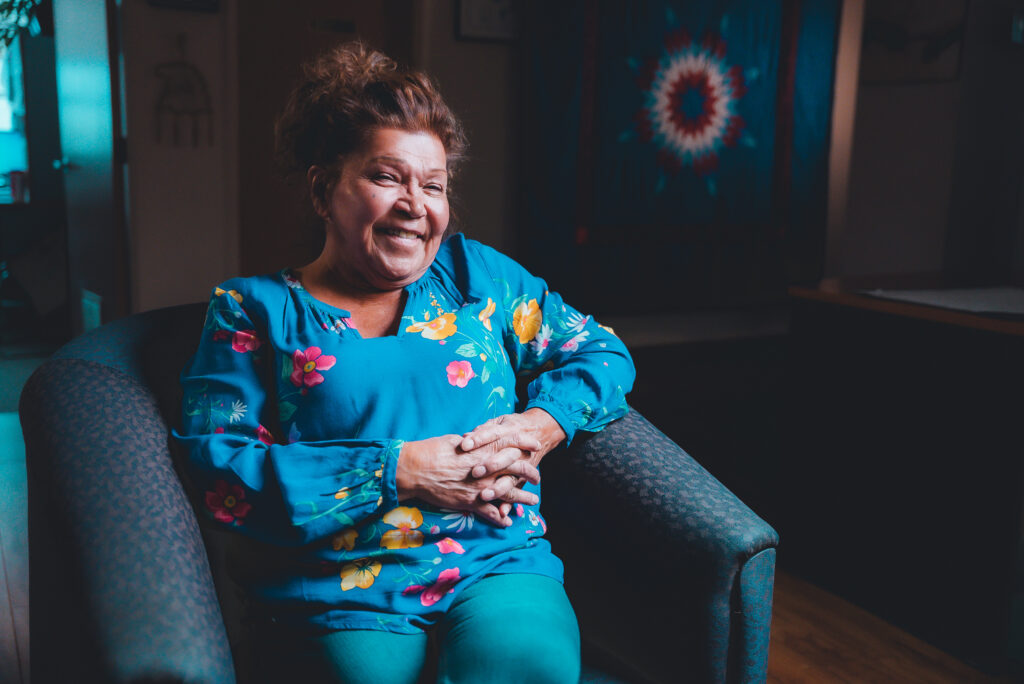
Mary is a counsellor for Aboriginal Counseling Services Association of Alberta’s Circle of Safety Family Violence Program.
The issue: It’s important to understand the nuance behind the statistics to move beyond stereotypes. Indigenous women and girls are much more likely to experience poverty, houselessness, and violence due to systemic racism and colonialism. This stems from the Doctrine of Discovery, a legal and religious concept that allowed Christian empires to seize Indigenous land, erase their cultures, and treat Indigenous people as inferior.
This doctrine led to unjust policies against Indigenous people, including the residential school system and the Sixties Scoop, and the ripple effects from this trauma are seen in the Missing and Murdered Indigenous Women and Girls epidemic, and the over-representation of Indigenous people in the child welfare system, the justice system, and the houselessness population.
How We Help:
United Way funds agencies and programming that focus on supporting Indigenous women through the ongoing and generational impacts of colonization by incorporating Indigenous Wisdom and Culture into their programming.
The Elizabeth Fry Society of Northern Alberta’s Indigenous Community Outreach addresses the pipeline from poverty to prison by providing interventions and support to Indigenous women, girls, Two-Spirit, and non-binary individuals who are criminalized. Through individualized support, group support, and advocacy, the program reduces the impacts of criminalization by directly addressing needs and barriers in program participants’ lives.
Esquao, the Institute for the Advancement of Aboriginal Women, is part of the Empower U Collaborative. Their financial literacy program aims to address poverty in a cultural context by building skills and confidence in Indigenous women and girls.
Aboriginal Counseling Services Association of Alberta’s Circle of Safety Family Violence Program supports women and their children who have been victims of family violence or have witnessed family violence in the home.
Bent Arrow Traditional Healing Society’s Transitions to Success employment program is designed to support Indigenous women meet their career goals through course work, job shadowing, and job search assistance.
United Way’s Women United exists to empower women and girls in our community who are at-risk or already living in poverty. If you believe that when women thrive, we all thrive, we invite you to join this powerful collective.
By uniting our collective compassion and resources, we can uplift vulnerable women in our community to build stronger, safer futures for themselves and for generations to come.
Learn more about Women United at the Women United Connect event on May 18, 2023.
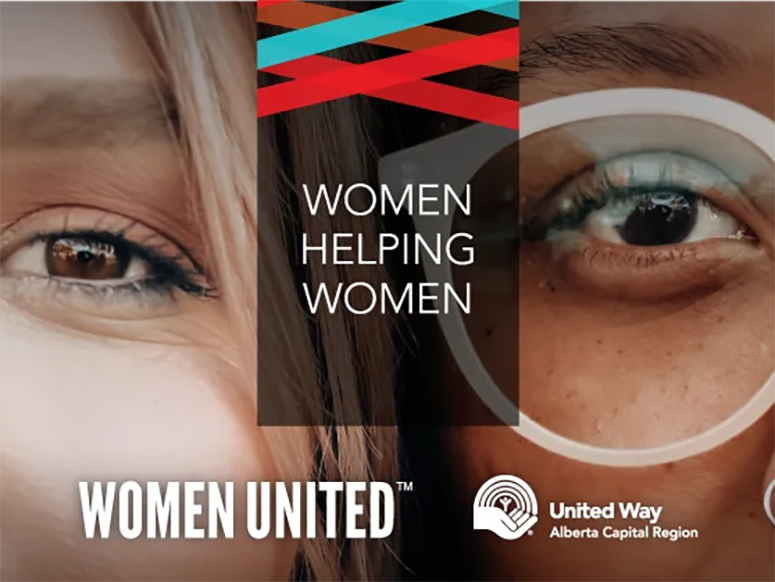
An inclusive international movement of more than 70,000 women and allies, Women United works to support and empower marginalized and vulnerable female-identifying neighbours through mentorship, mental wellness advocacy, and programs provided by United Way’s partner frontline community agencies.
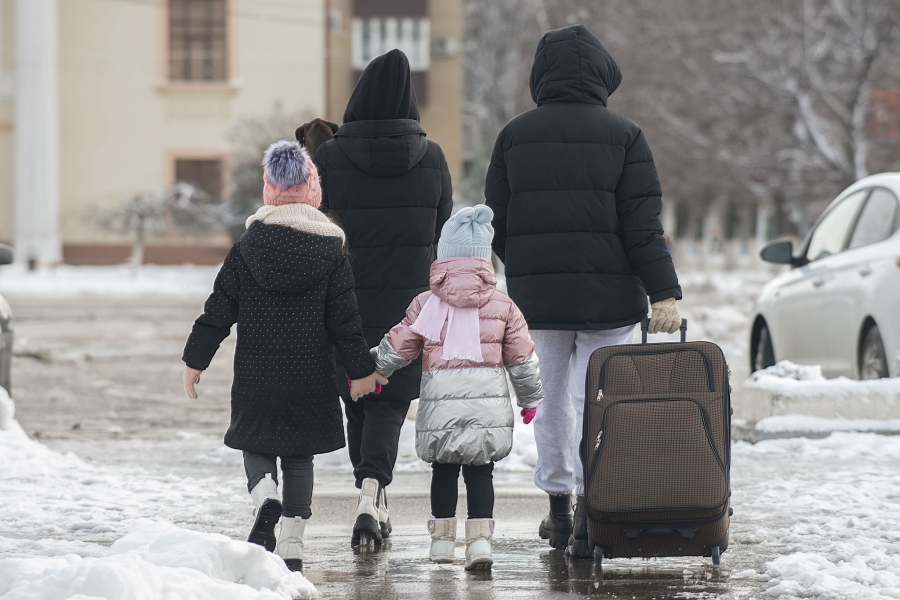
Maritza shares her story of escaping Colombia and coming to Canada as a refugee, and how her experience – and the support she received from United Way-funded programs – helped her rebuild her life.

An initiative of United Way, 211 Alberta works to shine a light on the resources available in every community across the province by connecting individuals to a network of resources that can help – all for free.